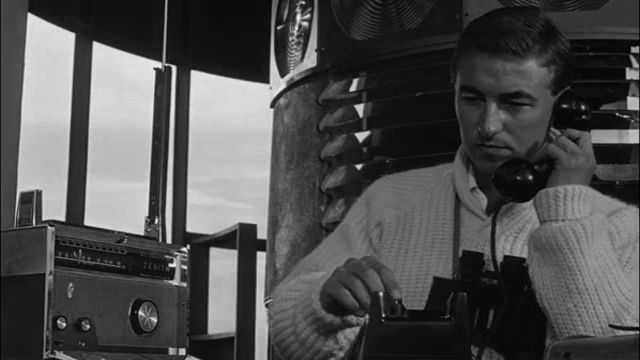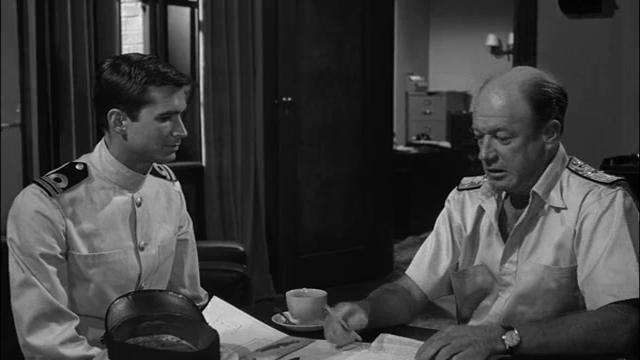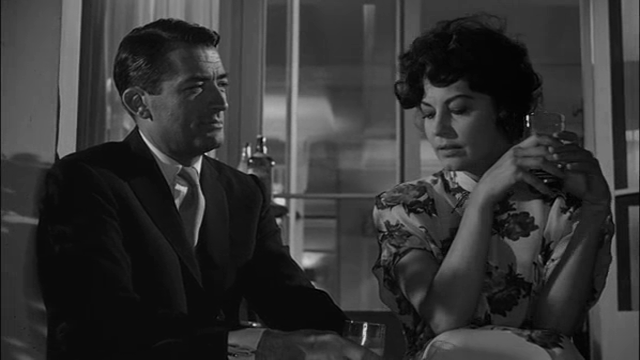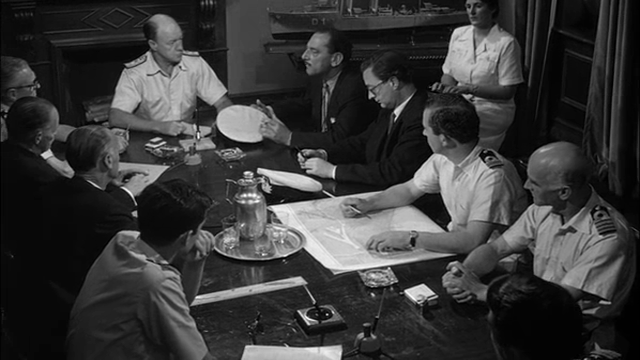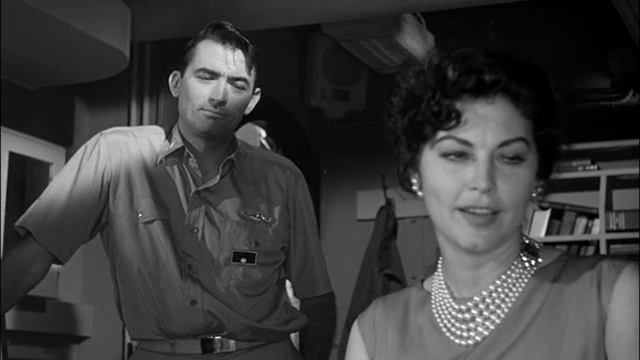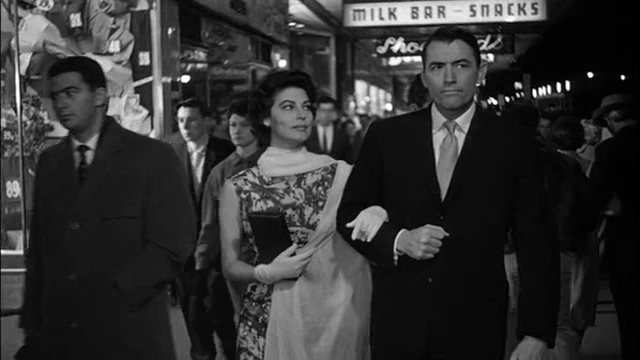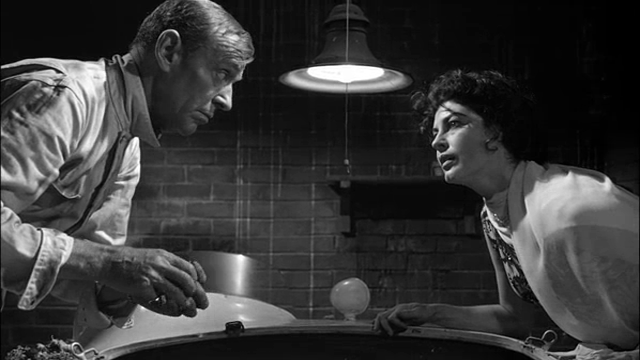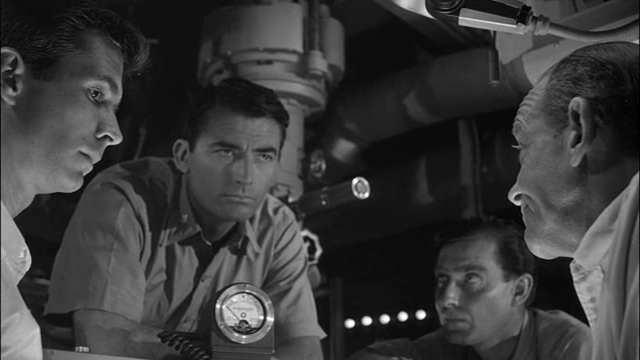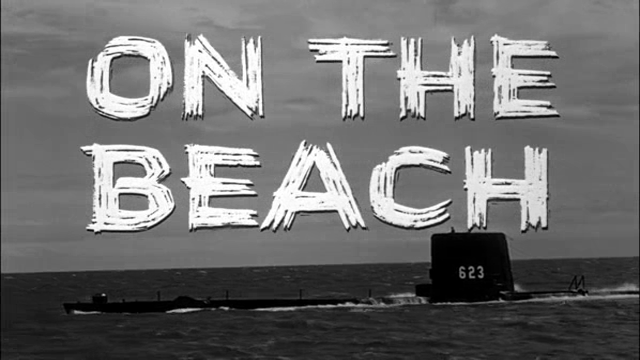
#344 – On the Beach (1959)
On the Beach (1959)
Film review #344
SYNOPSIS: After a nuclear war renders the northern hemisphere uninhabitable, the U.S. submarine USS Sawfish docks in Australia, where the last of the world’s population have been fleeing. Dwight Towers, the Captain of the submarine, is summoned by Australian naval command to take the submarine back to North America to test a theory that the radiation may have subsided. Peter Holmes, a young officer in the Australian navy, is to join Towers on board, and invites him back to his home to spend time with his family before they head out. The cast eventually have to come to terms with the end of the world in their own ways, as the radiation slowly makes its way southwards…
THOUGHTS/ANALYSIS: On the Beach
is a 1959 film about the end of the world. I have previously reviewed
the 2000 TV miniseries that is a remake of the film, so I will do some
small comparisons between the two, but focus on this version. The film
opens with Captain Dwight Towers of the U.S. submarine USS Sawfish
docking at an Australian port, in light of the Northern hemisphere being
uninhabitable due to the radiation from a nuclear war. The Australian
navy command has a new mission for Towers: to return to the northern
hemisphere to investigate an incomprehensible more code signal which
seems to be being sent from San Francisco, which should be
uninhabitable. Navy officer Peter Holmes ia assigned to Towers’
submarine, and he invites Towers to his home to spend time with his
family before they head out. The film focuses heavily on the
relationship between the characters, and makes the film more of a drama
than a post-apocalypse film.
The world that the film envisions five years in the future (set in 1964 from the 1959 production date) is a society that seemingly has carried on like very little has changed, and order still seems to be maintained, unlike the 2000 film, where society has all but collapsed. There’s some effects of the war, such as people using horses in place of cars since there’s no oil, but other than that everyone still seems to be going about their daily businesses, eiether through ignoring the inevitable, or having no idea what to do about it. This is also expressed through the main characters, as each one has a different attitude to the state of the world, such as Peter’s realism, and his wife Mary’s reluctance to talk about or hear anything about how they are all going to die. Dwight’s sheer reluctance to accept that his family was killed in the war and that they will simply be at home when he returns is very well delivered, and the complications it brings up with Moira’s (Mary’s older sister) attempts to get closer to him means that her usual tricks to seduce men, which she has no moral quabble about, make her hesitate with regards to a man who does not actually have a family, but believes he does. Another strong moment is when Peter talks with his wife about the suicide pills that the government will be offering, as he sees it as the only way to avoid a painful death for her and their daughter, and Mary finally has to confront the uncomfortable truth.
Towers and Holmes set sail to San Francisco to investigate the mysterious signal, and thereby shifting the focus of the film from the human drama to the mystery of the signal and the exploration of hope. This puts a number of the film’s threads on hold, and changes the pace a little. The film gets a bit muddled in the middle, and moving the film away from those relationships it has been building up means the viewer has to shift their focus as well. It has it’s moments, but it doesn’t offer as much drama as the opening. This is a long film as well, going for over two hours, and the scenes are very dialogue-intensive and often lacking musical accompaniment. I felt that the film needed to produce more dramatic high and low points in order to take the viewer on an emotional journey, and while the ones it does are well executed, they are inconsistently placed, and some portions of the film are forgotten in a lull of activity. The performances all-round are fairly good, but some of the Australian accents the American actors use are pretty bad. By the time the film ends you see each of the characters having to make tough choices about how they approach the end, and the way the character’s have been built up gives their actions a powerful significance. There’s very little said about the nuclear war; it just seems like it’s a thing that happened and everyone has just accepted and moved on, while I think exploring this in more depth would have helped fill in the more quiet and less emotional scenes of the film. On the Beach pushes some boundaries in terms of exploring the inner traumas of people in the face of certain death, and offers a variety of characters in a well-defined world. It does however, fall short in terms of pacing and enough content to justify its runtime, and the human drama is done in much more well-rounded films, meaning overall it’s a mixed bag.

